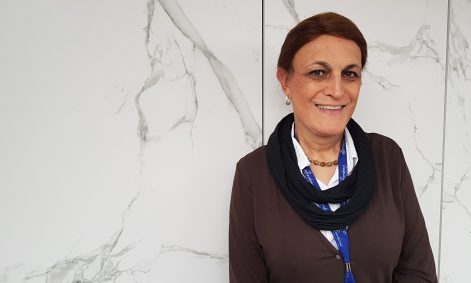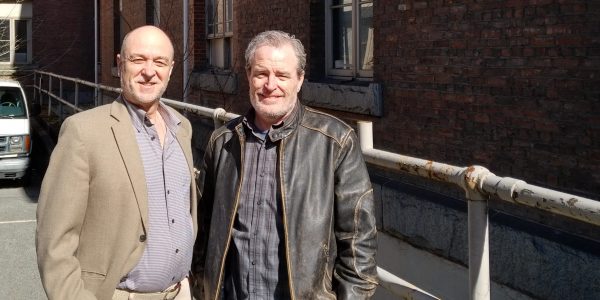Honoured for connecting with others
Last summer, Vancouver’s Spiritual Care Department undertook a pilot initiative to provide spiritual outreach services to people in the Downtown Eastside (DTES). It was the first of its kind in Canada.
Under supervision, six interns studying Clinical Pastoral Education took to the streets of the DTES for four months to provide support outside of the clinical setting. Through the program, interns gained real-world experience supporting people through spiritual means in times of change, crisis or chronic struggle.
Recognized for their service
Now, the Canadian Association for Spiritual Care (CASC) has announced the program will be presented with an Award of Excellence in Professional Practice for Education. The award recognizes Rev. Doug Longstaffe, profession leader & CASC educator for Spiritual Care at VGH and Rev. Dr. Philip Tse, former Richmond Hospital Spiritual Care Practitioner and associate CASC educator, for their visionary approach combining community service and hands-on education. It will be presented at the CASC’s National Convention later this month.
The power of listening
“We have a lot of heroes who work down there,” says Doug.
“What our interns were able to do was to develop a deep level of rapport with individuals who were struggling,” says Doug. “Our interns connected with people through their worldview and religious traditions instead of expecting them to adopt ours. Once the rapport was there, they were able to use their clinical skills, including counselling, to help individuals tell their story, understand it and empower them to learn from their own narratives.”
By doing so, they were able to reach many people on the DTES. Former pilot program intern, Lisa Salazar recalls one particular community member:
One day at Insite, there was a fellow who was very agitated. He’d just come from the injection area and he was really hyper. He emptied his knapsack, full of all his belongings onto the table and he started to fold and place his items in a very particular way, much like someone who had OCD. I approached him, began talking with him and after a while, he told me his story. Throughout our conversation, I kept eye contact with him. He began to calm down and his movements became slower. He showed me a colouring book he’d been working on and we talked about art. About 10 minutes into our conversation he commented that I’d been keeping eye contact with him. ‘Do you know what that means to me?’ he said. ‘It means that you care about me. People don’t look into my eyes when I talk to them. I haven’t had someone just listen to me and make eye contact with me in I don’t know how long!’

Lisa Salazar
“Our frame of reference was always health care – supporting the recommendations of social workers and community nurses, and connecting people with programs and services,” adds Lisa. “At the end of the day, it was about human connection. We were invested in the community members and it showed. Letting someone open up about their lives is very cathartic for them and it lets them know they’re valued. Time and again people said to me, ‘Thanks for listening to my story. It really means a lot to me.’”
Making a difference and learning hands-on
“It was a win-win,” says Doug. “It gave the interns experience-based education that can’t be found in the classroom, while at the same time advancing the spiritual empowerment of distressed community residents.”
“It was a transformative experience for me,” Lisa says. “I grew incredibly. It gave me a much deeper appreciation for persons who struggle with addictions due to the traumas in their lives and the experiences I had with that community will stay with me always.”
Hopeful about the future
The pilot project funding was secured by the VGH and UBC Hospital Foundation with the most of the support coming from the United Church of Canada, which also allowed the program to use their space in the DTES.
Doug hopes the pilot will be the first step in offering this model of care and outreach more broadly.
“Spirituality is often the invisible missing link, or perhaps more accurately, the missing glue that can help marginalized persons struggling with substance use, mental health concerns and social stigma. It is a huge dimension of the human condition and valued by many persons of wide diversity.”

